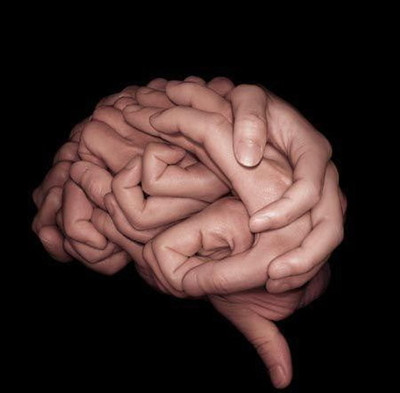(单词翻译:单击)

We all love getting something new. But then we have to move around our current clutter to find a place for it. Well, looks like things work the same way in the brain. Because according to a study published in the journal Cell, newborn neurons in the brain’s memory center make room for new memories by moving out the old ones.
我们都喜欢得到一些新鲜玩意儿,不过接下来我们就得收拾收拾,找个地方把它放起来。恩,怎么说呢,这和我们大脑记忆的工作原理差不多。根据发表在《细胞》杂志上的一项研究报告,大脑海马体的新生神经元会清除旧有的记忆以接纳新的记忆。
Ten years ago, scientists discovered that the brain makes new neurons well into adulthood. These cells arise in the hippocampus, a brain region associated with learning and memory. So everyone figured these new neurons must help make new memories, although no one knew how.
十年前,科学家们已经发现大脑会不断生成新的神经元,尤其在成年之后。大脑海马体也会不断生成新的神经元,而大脑的这块区域负责的是人类的学习和记忆。所以,新生神经元必定与人类记忆的形成有关,然而其中的具体原理则一直没有搞清楚。
Working with rodents, researchers watched what happens when they either prevented neurons from being born or made them sprout faster. They found that new neurons help move older memories out of the hippocampus and into long-term storage in the neocortex. Such shuffling, they think, may free up space in the hippocampus and increase its capacity for taking in something new. The new memories in the study happened to be fearful ones, but the researchers think the process applies to all memories stored in the hippocampus. Which means your brain is probably moving stuff around right now so you can remember this story.
研究者们在小白鼠身上进行了实验,他们先是对一部分小白鼠生成新的神经元进行抑制,接着反过来刺激另一部分小白鼠加速生成新的神经元,并在此相对过程中进行观察。他们发现新生神经元会在搬运记忆的过程中起到作用,那些旧有的记忆会从海马体内被转移到大脑皮层以得到长期的保存。研究者认为,这一记忆转移的过程,能够对大脑海马体内的空间进行清理,以增加大脑接受新事物所需的记忆容量。尽管目前只是从动物实验中得出这一结论,实验中小白鼠所形成的新记忆大概不怎么愉快,不过研究者们相信这种记忆转移的过程适用于各种贮存在海马体内的记忆。这意味着,此刻你的大脑很可能就在搬运一些老物件,好让你记住这一崭新的生物学发现。


